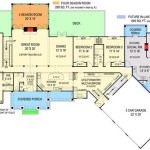Project Management Plan for Building Construction: Essential Aspects
A well-defined Project Management Plan (PMP) serves as a roadmap for successful building construction projects. It details the project's objectives, scope, schedule, resources, and methods, ensuring alignment and efficient execution. Here are essential aspects to consider:
1. Project Definition: Clearly state the project's purpose, scope, and expected outcomes. Define the deliverables, milestones, and key performance indicators (KPIs) to measure success.
2. Project Schedule: Establish a realistic timeline and milestones for the project. Use Gantt charts or other project planning tools to identify dependencies, critical paths, and potential delays.
3. Resource Allocation: Identify the necessary resources, including personnel, materials, and equipment. Estimate their costs and ensure availability to meet project deadlines.
4. Risk Management: Anticipate and mitigate potential risks by conducting risk assessments. Identify mitigation strategies and assign responsibilities to address identified risks.
5. Communication Plan: Define clear communication channels and protocols for stakeholders. Establish regular reporting mechanisms and document all important project updates and decisions.
6. Quality Management: Establish quality standards and inspection protocols to ensure the project meets the desired specifications. Implement procedures for defect management and corrective actions.
7. Change Management: Anticipate and manage changes to the project scope, schedule, or resources. Define approval processes and document all changes to ensure traceability and prevent scope creep.
8. Stakeholder Engagement: Identify stakeholders and their interests. Engage them regularly to understand their expectations and address their concerns. Secure their buy-in for project decisions.
9. Environmental Considerations: Consider the environmental impact of the project and implement sustainable practices. Comply with relevant environmental regulations and secure necessary permits.
10. Continuous Improvement: Establish a process for ongoing evaluation and improvement. Regularly review project progress and identify areas for optimization.
By incorporating these essential aspects, project managers can develop a comprehensive PMP that guides the building construction project towards successful completion, meeting objectives within the defined scope, schedule, and budget.

A Sample Microsoft Project Construction Schedule B4ubuild Com

Construction Schedule Template Free Excel Csv

Home Improvement Blog Construction Project Management Services And Books

Construction Schedule Template

Construction Free Spreadsheet Templates

Construction Project Management Process Using Gantt Chart Presentation Graphics Powerpoint Example Slide Templates

Project Management For Construction Planning

A Sample Microsoft Project Construction Schedule B4ubuild Com
Free Construction Project Management Templates In Excel

Free Construction Schedule Templates Smartsheet








